By Mindful Muslim Reader

The last 10 days of Ramadan are known as the Days of Salvation. We rectify our wrongdoings, with hope in Allah’s ﷻ all-encompassing mercy and forgiveness. Check out these books featuring characters who correct their previous mistakes–the only path toward true salvation.
At first read, The Rainbow Fish teaches very young children a gentle lesson in the virtue of sharing at an age when a child’s need to establish independence can make sharing a struggle. But the real beauty in the book comes when the Rainbow Fish strips away his pride, scale by shimmering scale, until his true beauty shines through. He learns, through a search for wisdom, that his worth comes not from his worldly wares, but from his ability to give from that which he loves best. Find detailed ratings, virtues, struggles, and flags.
“Because he did his stealing by night, his skin had become pale and sickly. Because he spent his time either hiding or sneaking about, his body had become shriveled and bent. And because he had neither friend nor relative to make him smile, his face was always twisted into an angry frown.”
The Gold Coin is about a thief who spends his days chasing a gold coin. His appearance is the outward manifestation of his spiritually diseased heart. When he unexpectedly finds himself in the warm company of a generous, hardworking, and kind community, he is humbled and slowly transformed. Find detailed ratings, virtues, struggles, and flags.
The Miraculous Journey of Edward Tulane is the story of a rabbit unlike any other. Edward Tulane, a toy rabbit, perceives himself to be perfect: made out of china and handsomely dressed. He is oblivious to the ugliness of his own heart—self-absorbed, riddled with vanity and arrogance, and unable to love anyone but himself. As he helplessly journeys through a series of misfortunes in which he sees others endure loss and grief, Edward Tulane learns to look at his own heart, his relationship to others, and his purpose. The story illustrates a deep metaphor for understanding that Allah ﷻ has created for each of us an individual path of tests and trials, but the way we respond to those hardships, learn from them, and show gratitude for our blessings, brings us closer to knowing and loving our Lord. Find detailed ratings, virtues, struggles, and flags.
The idea of self-sacrifice in post-modern times is held in suspicion as a type of humiliation, an unfair burden the individual should not be asked to bear on behalf of others. Children need to read stories of sacrifice, an integral part of our tradition as Muslims. Our Prophets, peace be upon them, made the greatest sacrifices—of wealth, family, and even life—to secure for us our greatest benefit—the preservation of Divine Revelation.
A compelling story about the power of sacrifice, The Black Cauldron (Book 2 of the The Chronicles of Prydain series) follows Taran and his band of friends on a mission to destroy the evil magic of the Black Cauldron. In order to secure it, Taran offers his beloved brooch, whose powers gave him true dreams, enabled him to help others, save lives, learn about the natural world, and appreciate beauty at a higher level. Taran willingly makes this sacrifice to help his community. Find detailed ratings, virtues, struggles, and flags. Mindful Muslim Reader recommends Books 1-5 in this series.
Inspired by the life of a real king, The Legend of the Wandering King is a story of a prince who finds himself unable to come to terms with the consequences of his diseased heart. Driven by his guilt, Walid embarks on a path to redemption leaving his life of luxury to a life of thievery, goat herding and eventually servitude. With each humbling experience, Walid finds himself unable to escape the consequences of his actions, choosing instead the harder path of accepting responsibility for his actions and seeking forgiveness. Find detailed ratings, virtues, struggles, and flags.
The great scholar, Imam al-Ghazali, may Allah ﷻ have mercy on him, uses a metaphor to describe the different elements that make up a human soul: the intellect is the king, emotions are a dog, and the base desires of the lower self is a pig. The dog and the pig are meant to be used in service of the King. It is when the dog or pig is in control of the King that you become the sum of your base desires or emotions, you lose wisdom and the soul is left to the whims of unchecked emotion.
The classic Sense and Sensibility is a very relevant read for our children during a time when feelings are increasingly treated as fact—when the use of logic and reason to arrive at truth is frowned upon if it gets in the way of expressing your emotions. Our children are taught that if they feel anger, the other must be at fault. If they feel discomfort, the other must be silenced. If they feel betrayed, the other must be untrustworthy. If they feel unhappy, the other must succumb to their wishes. Examining your own character and heart, reflecting on your wrong feelings and actions—muhasabah—has become not only a lost art, but a distrusted one. Austen shows us what happens when we lose this ability of reflection and temperance. Find detailed ratings, virtues, struggles, and flags.
Find more books on salvation for the last 10 days of Ramadan.
Mindful Muslim Reader rates children’s books for virtue, language, story, and beauty and flags content advisories when needed. We read cover to cover so you don’t have to. Find more books worth reading.







